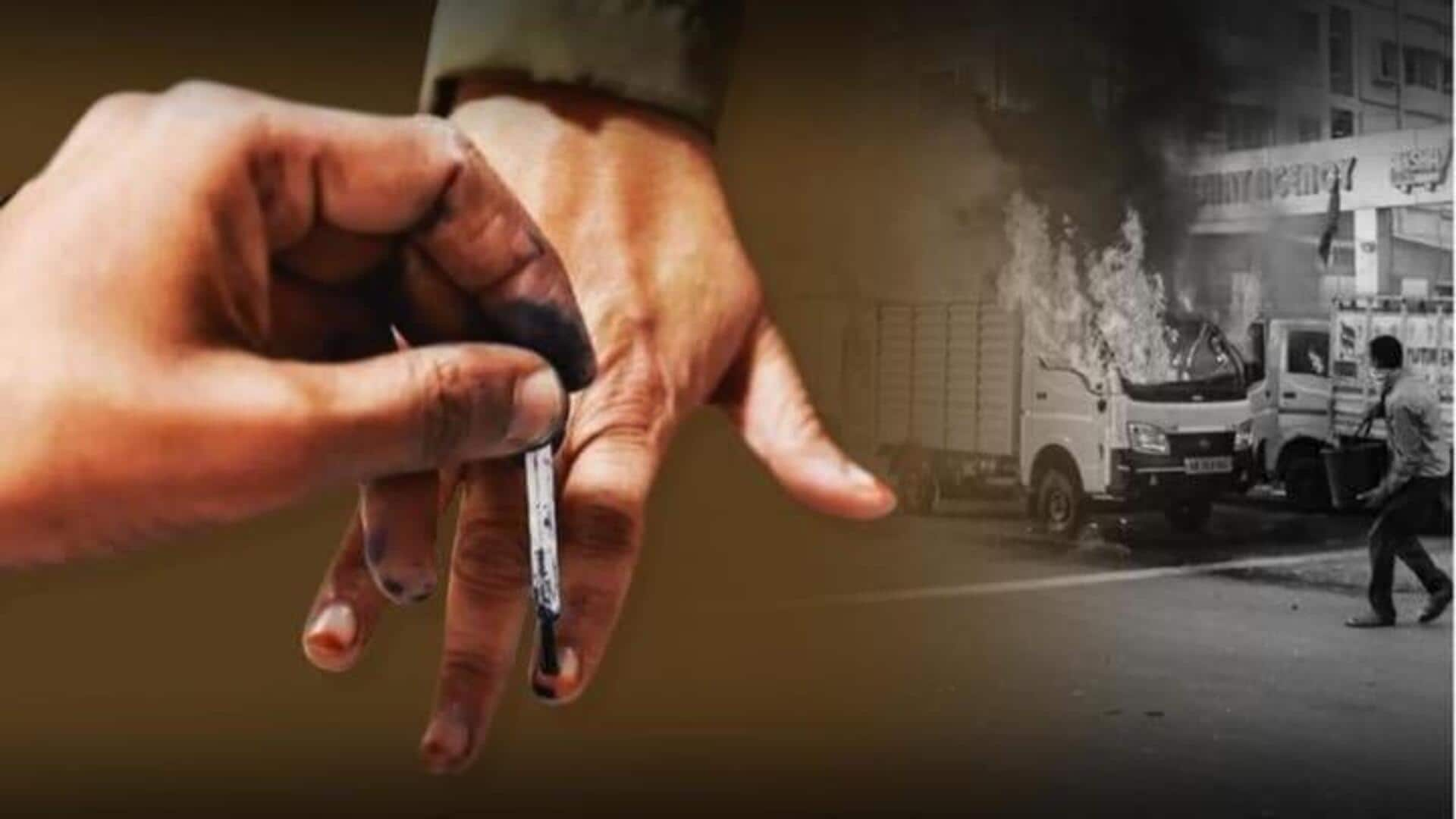
Bangladesh votes today amid opposition boycott, fears of violence
What's the story
Polling for the general election in Bangladesh began on Sunday amid fears of sporadic violence as the country's main opposition parties announced a boycott. Prime Minister Sheikh Hasina is looking to secure her fourth consecutive term in the polls. Over 1,500 candidates from 27 political parties and 436 independent contenders are contesting the election. However, the main opposition party—the Bangladesh Nationalist Party (BNP)—has called for a 48-hour nationwide strike in response to mass arrests of politicians demanding Hasina's resignation.
Context
Why does this story matter?
Hasina is seeking her fourth consecutive and fifth overall term, and with the main opposition party, the BNP, boycotting the election, her victory seems likely. These elections are crucial for South Asia, especially India as it sees Bangladesh as a strategic partner and key ally for the security of its seven northeastern states. However, the BNP has questioned the credibility of the election, alleging that the ruling Awami League propped up "dummy" candidates as independents to make it appear genuine.
Details
100 foreign observers monitoring Bangladesh elections
According to the country's Election Commission, 119.6 million registered voters are eligible to vote at more than 42,000 polling stations on Sunday. The 12th general election is being held under tight security and monitoring by over 100 foreign observers, including three from India. Among the political parties running in the elections is the Jatiya Party (JAPA). The remaining parties are allegedly the constituents of the ruling Awami League-led coalition, termed "satellite parties" by some analysts.
What Next?
Opposition boycott polls to press for their demands
The BNP's strike calls for the resignation of the "illegal" government, the establishment of a neutral government, and the release of all party leaders and activists from prison. The party has enforced intermittent transport blockades and strikes for the past three months, arguing that no election under the current government would be fair and credible. BNP Spokesperson Ruhul Kabir Rizvi stated that the strike aims to press for these demands.
Details
Strict security measures, Election Commission's warning
Amid apprehensions of violence, army personnel were deployed across Bangladesh two days ago to maintain peace and order during voting. The Chief Election Commissioner of Bangladesh, Kazi Habibul Awal, cautioned that any irregularities in the national polls could lead to the election being canceled. He emphasized that vote rigging, ballot snatching, money transactions, and using muscle power in favor of any candidate will not be tolerated.
Insights
Pre-election violence and arson attacks
Despite tight security measures, unidentified people carried out homemade bomb and arson attacks on empty polling centers in four out of 64 administrative districts. At least 14 arson attacks were reported in 16 hours until Saturday morning. Separately, four people were killed when a passenger train was set ablaze near Dhaka on Friday night. The BNP has called for a United Nations (UN)-supervised investigation into the incident, labeling it a "pre-planned" act of sabotage.
Facts
Economic concerns, Hasina's track record
Over the last 15 years, Bangladesh has become one of the world's fastest-growing economies under Hasina's leadership. She has been in power since 2009 and was re-elected in December 2018 amid allegations of rigging. However, a worldwide economic downturn in mid-2022 caused havoc, prompting her administration to seek assistance from the International Monetary Fund (IMF) due to a lack of foreign reserves. Many are concerned that Hasina's fourth straight term would worsen the economy and deepen their sorrow.